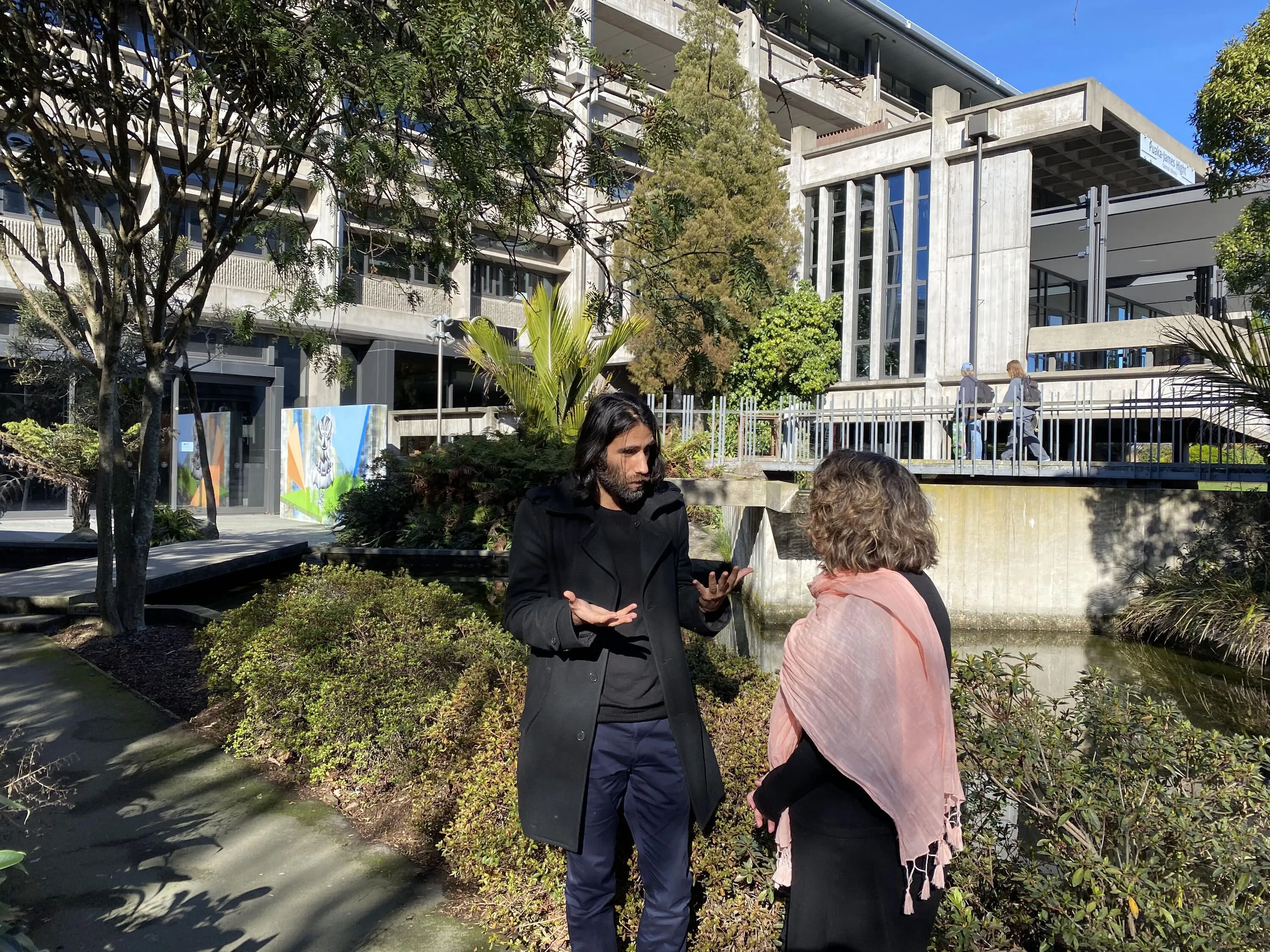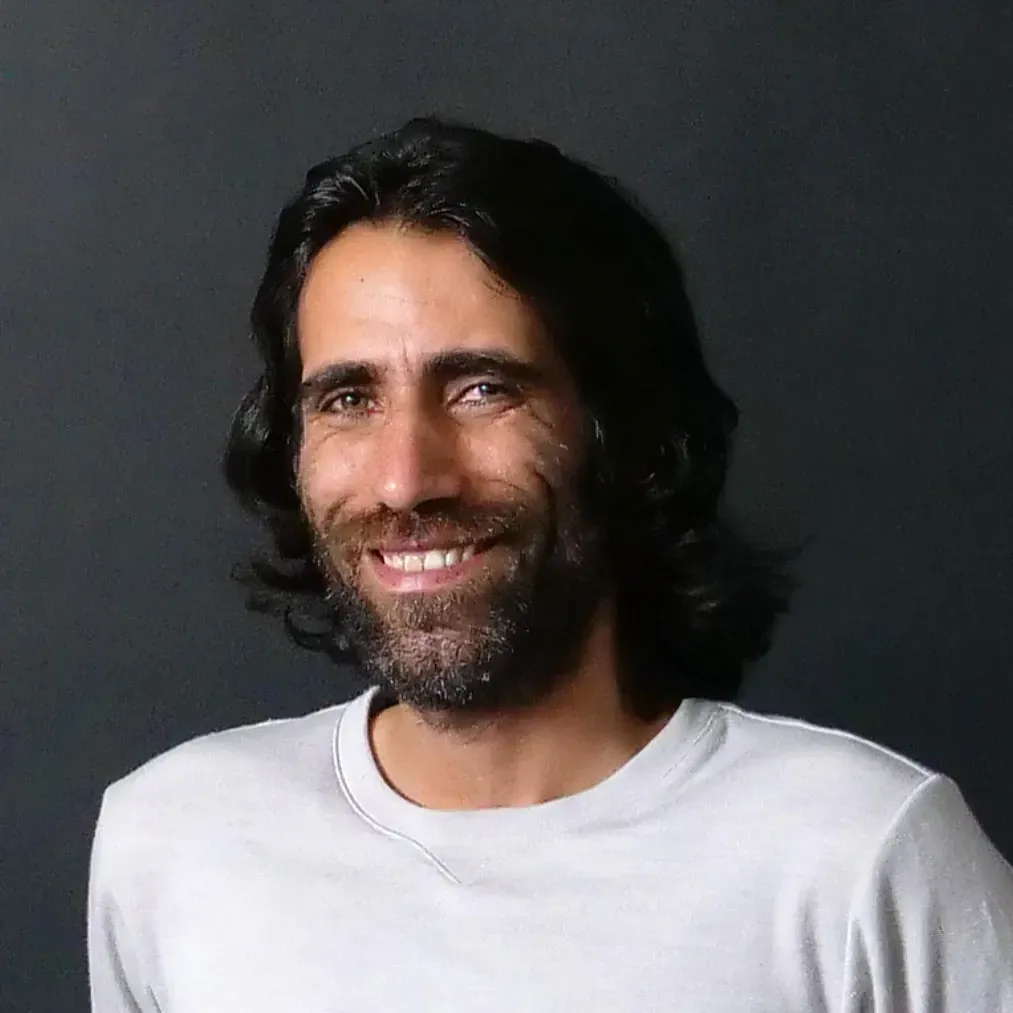New Zealand's Latest Award-Winning Author
Written by
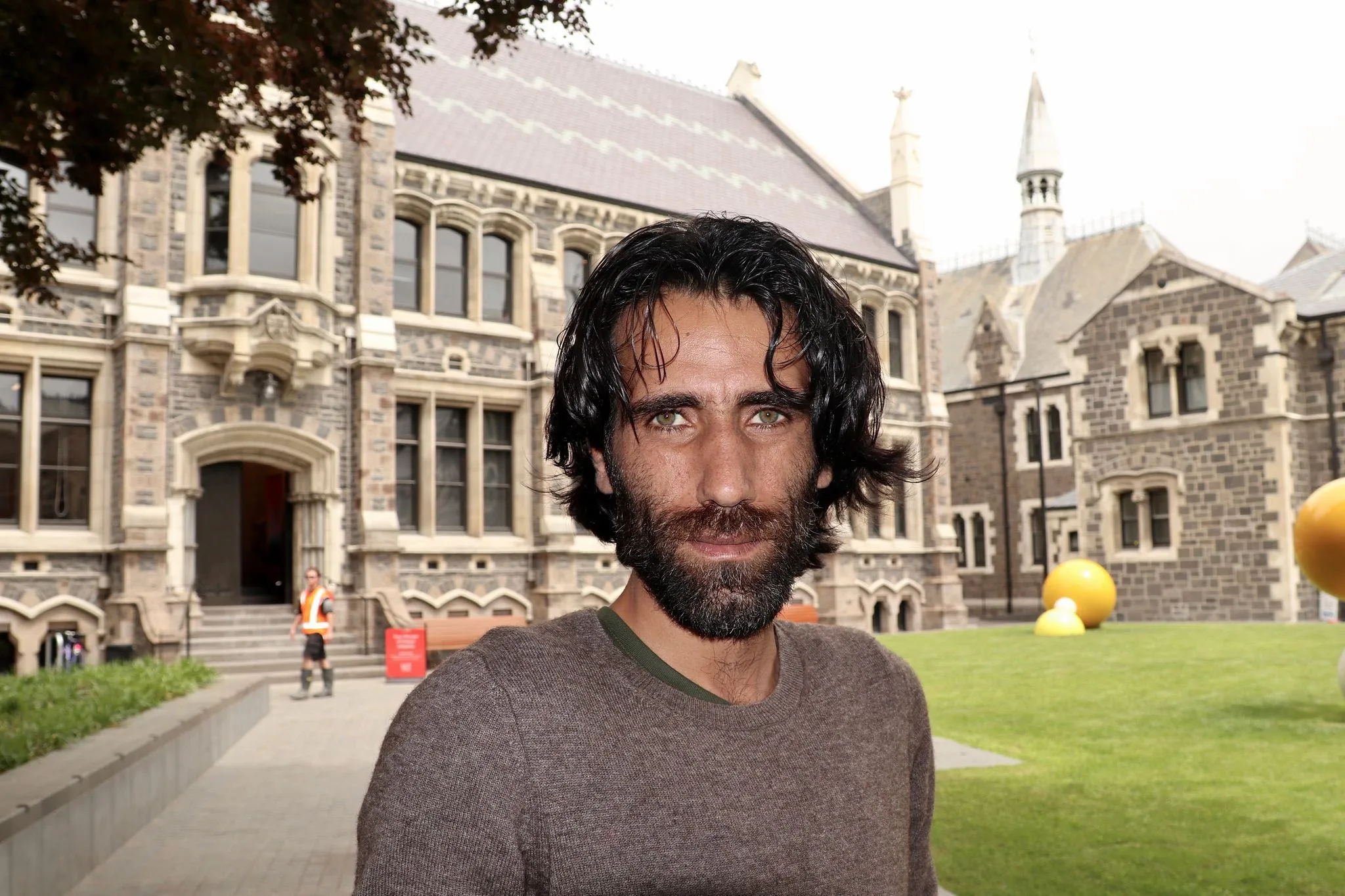
"Just imagine in the day, how many small prisons we experience." - Behrouz Boochani, in conversation with John Campbell, 2019 WORD Christchurch festival.
Award-winning Kurdish-Iranian author Behrouz Boochani is an incredibly important addition to the New Zealand literary community, says WORD Christchurch Festival Director Rachael King.
WORD was instrumental in getting Boochani here, his original one-month visitor’s visa having been granted on the strength of an invitation to participate in the 2019 version of the highly-regarded literary festival.
He has now been granted refugee status, giving him the right to remain here and eventually apply for permanent residency, while the University of Canterbury has offered him a position as a Senior Adjunct Research Fellow.
Boochani, who worked as a journalist for a Kurdish publication but fled Iran after the arrests of his colleagues, spent six years in detention on Manus Island, Papua New Guinea, under the Australian Government policy of keeping asylum seekers out of the country.
He gained international recognition for his efforts to expose the conditions there, culminating in his award-winning bestseller No Friend But the Mountains, laboriously written on a cellphone and smuggled out in thousands of pdf files.
King says it’s extraordinary to now have him as part of the New Zealand literary community, commending his “amazing resilience.”
She adds, “he's 37 now and some of his prime years were basically taken from him, in purgatory.”
First steps
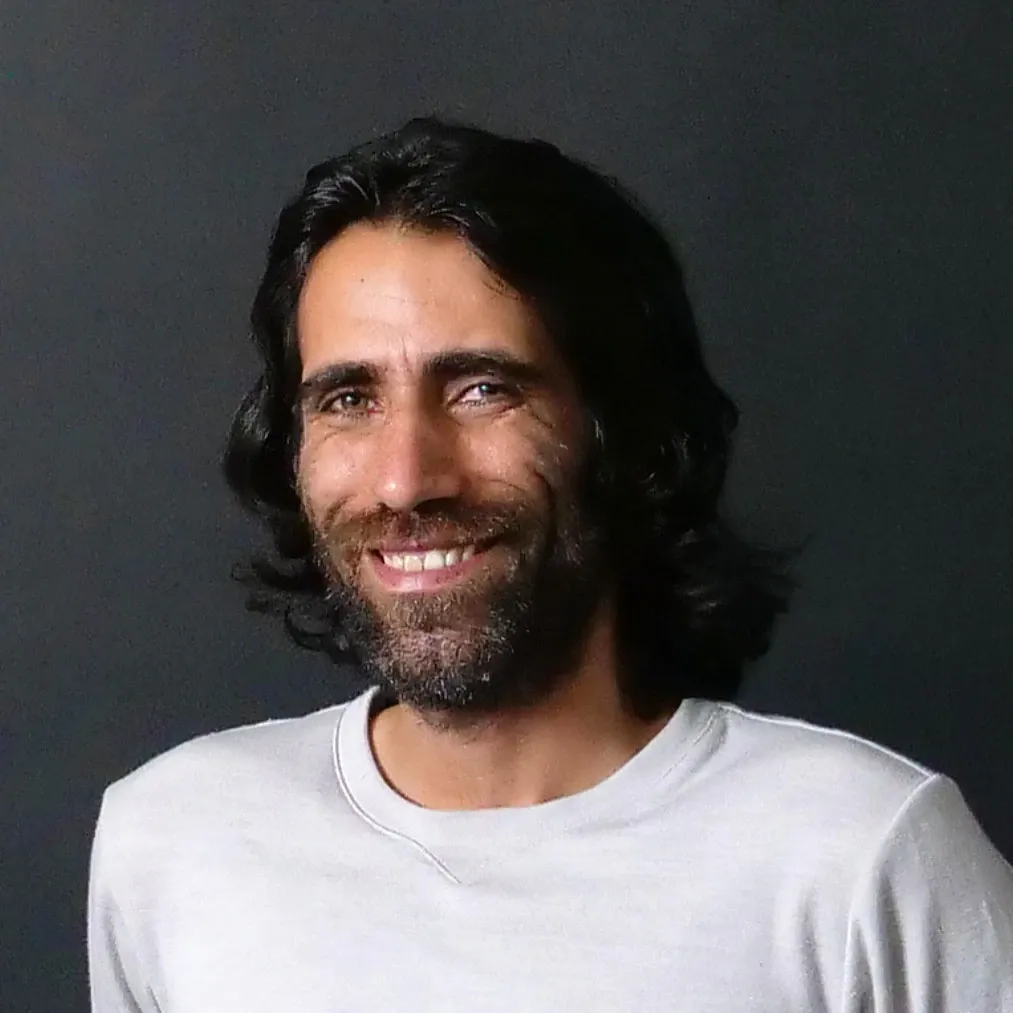
Behrouz Boochani. Photo: University of Canterbury.
King says the WORD Christchurch mission was to bring readers and writers together, and bring the very best speakers from around the world – but it was a surprise that Boochani was able to attend last November’s event.
“We sent him the invitation not really thinking that it was likely he would come but thought we'll just give it a try anyway.
“So he applied for a visitor’s visa and he got it, so the next thing we knew was he was coming here so it was fantastic.”
Boochani’s appearance proved to be one of most successful events WORD had ever hosted.
He was interviewed by John Campbell in front of a sell-out audience of 1300 and signed books for an hour and a half afterwards.
Sense of security
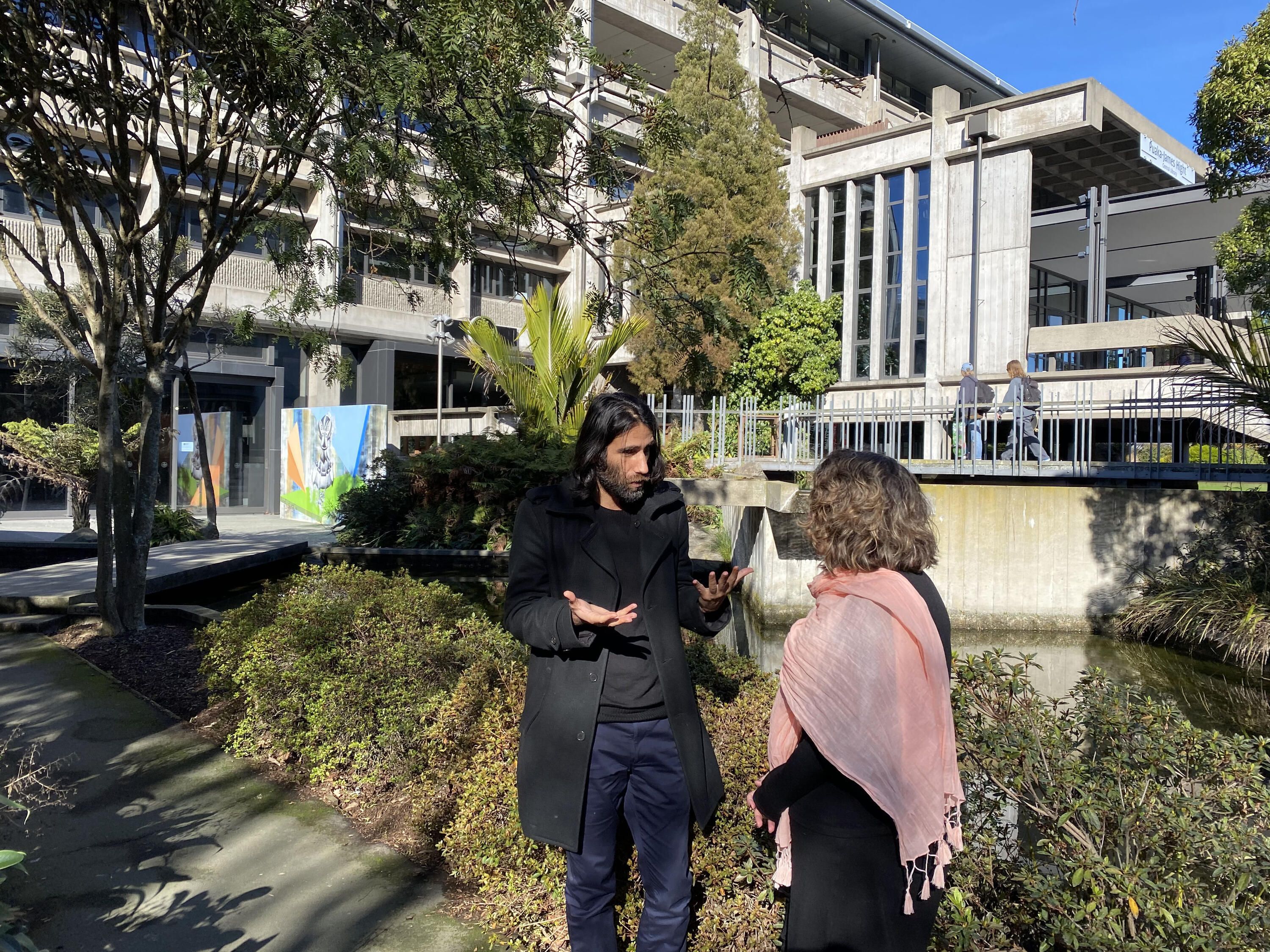
Behrouz Boochani speaks with Deputy Vice-Chancellor (Academic) Professor Catherine Moran on the University of Canterbury Ilam campus. Photo: University of Canterbury.
In a press release from the University of Canterbury, Boochani said the asylum decision has provided him with a sense of security.
“I now have certainty about my future, which is good. But I cannot fully enjoy this or celebrate while the Australian Government is still unfairly detaining people in Port Moresby, Nauru and Australia.”
He says he will be applying for permanent residency in New Zealand.
“Over the last eight months I have discovered that, on the whole, New Zealanders do not tolerate hate speech. Being here will enable me to keep standing up and campaigning for better treatment of those who are still being illegally detained by Australia.
“As an indigenous Kurd, I would particularly like to acknowledge Ngāi Tahu for the care and hospitality they have provided me. I look forward to furthering my relationship with Ngāi Tahu in my role as a Senior Adjunct Research Fellow at UC’s Ngāi Tahu Research Centre.”
Ngāi Tahu support
Centre Director, Associate Professor Te Maire Tau he is pleased with the outcome of the immigration process and proud to be hosting Boochani.
“As the local iwi, Ngāi Tahu is laying a protective cloak over Behrouz Boochani – tākaitia ki te korowai aroha.
“The University of Canterbury has a history of supporting refugees going back as far as the 1930s, when Karl Popper the philosopher arrived as a Jewish refugee from Austria. While at the University, he published the book Open Society and its Enemies, an extremely important and influential work.
“Kā Waimaero, the Ngāi Tahu Research Centre, is supporting Boochani just as the University once supported Karl Popper.”
There has been a flurry of media interest, some of it critical of the decision to grant him refugee status. But in an interview with Radio New Zealand, Boochani said he had been falsely accused of coming here illegally. He refused to say whether or not he came to New Zealand with the intention of applying for asylum but said he did not get special treatment and the process was legal.
"New Zealand was the first safe country and I had this right according to the New Zealand law, according to the international law, to the international convention, to seek asylum in this country and according to the law they had to process my case.”
Gift to us all
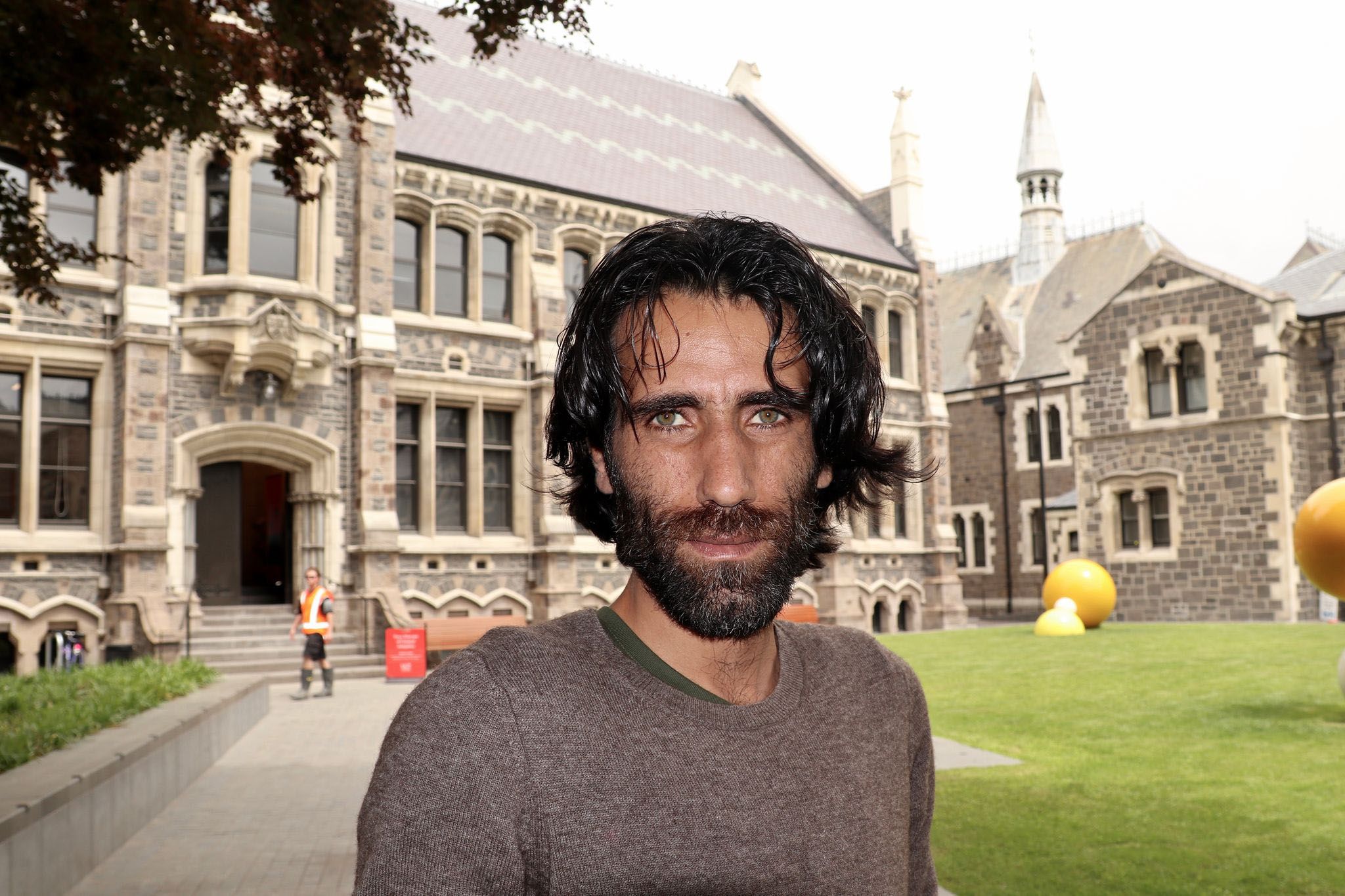
Behrouz Boochani visiting the University of Canterbury’s College of Arts city campus (in the Arts Centre). Photo: University of Canterbury.
Mandy Hager, head of the NZ Society of Authors, says granting Boochani refugee status has become a political football.
“It’s not the way that we would like to have welcomed him to the country but I think he was aware that was always going to be the case.”
She says the Society supports him, from both literary and political points of view, but it wasn’t claiming any credit for the success of his application.
“All we did was make contact, give him a membership so that he was linked up to the support of the society, and offered to support him in any applications he made.
“We didn't actually need to do more than that because he had extremely good support from the University and from Ngāi Tahu. We just wanted to make sure that we were there as backup if he needed us because we're very glad he's here.”
Hager says Boochani is an extraordinary writer and having him in New Zealand is a gift to us all.
“But the Society of Authors is also affiliated to PEN International and their main role is to support writers in issues of freedom of speech and other freedoms and so we also support him from a political point of view.
“He's done an amazing job pointing out the horrors of the Australian detention system and we want to support the fact that he has spoken out on this, and support all writers who are put into that position.”
